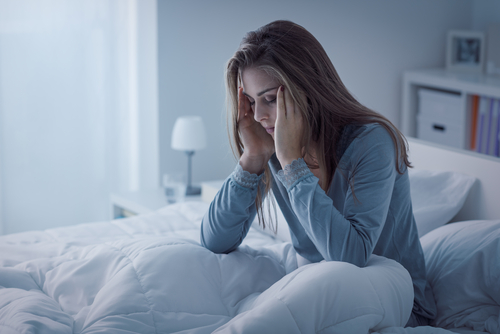Read the latest and greatest from our team
of incredible specialists.

Beach House Recovery Center » Blog » Why Alcohol Doesn’t Help You Sleep Better
Plenty of people take a “nightcap”—a “bedtime snack” in the form of an alcoholic drink—to “help them sleep better.”
Plenty of people are misinformed.
Virtually every scientific study has come to the same conclusion: while alcohol definitely makes you drowsy, it’s no magical sleeping pill. Particularly not if what you’re aiming for is the medically recommended full night’s sleep of seven to nine hours.

Here’s why taking that nightcap will actually hurt your sleep:
And don’t forget the “hangover” effect of taking overly large nightcaps. Headaches, nausea, dizziness and an overload of “grumpy and gloomy” body chemicals do not generate a “well-rested” feeling.
Even if you are (or believe you are) sleeping better as a result of regular nightcaps, you have a problem if you depend on alcohol as your primary tool for “normal” functioning at bedtime or any other time.
Whether or not things have ever gotten that bad, anybody who’s reached the point of not being able to imagine bedtime without alcohol should get medical advice on whether to seek help from an alcohol detox specialist.
If you’re already in recovery from alcoholism, and worrying that insomnia will come with the abstinence package, be assured there are better ways than a nightcap (or any drug) to fall asleep quickly and sleep well. First, eliminate anything that may disrupt your ability to settle down if taken in the last hour or two before bedtime:
Then, to ensure your body and mind the best sleep atmosphere:
Addiction Recovery Tips: Why Sleep Hygiene is Good for Recovery
Harmful Side Effects of Mixing Sleeping Pills with Alcohol
Whether you’re researching for yourself or a loved one, Beach House can help. We understand that this is a serious time in your life and that the treatment center you choose matters. We want you to feel comfortable and empowered to make the right decision for yourself, a friend, or a family member. This is why a counselor is waiting and available to answer your questions and help put your mind at ease regarding the next steps. Many of the staff at Beach House have walked in your shoes. If you feel you’re ready or want more information about how to help a loved one, we can help today. You can also learn why we are voted the #1 rehab for addiction treatment in Florida.





"*" indicates required fields